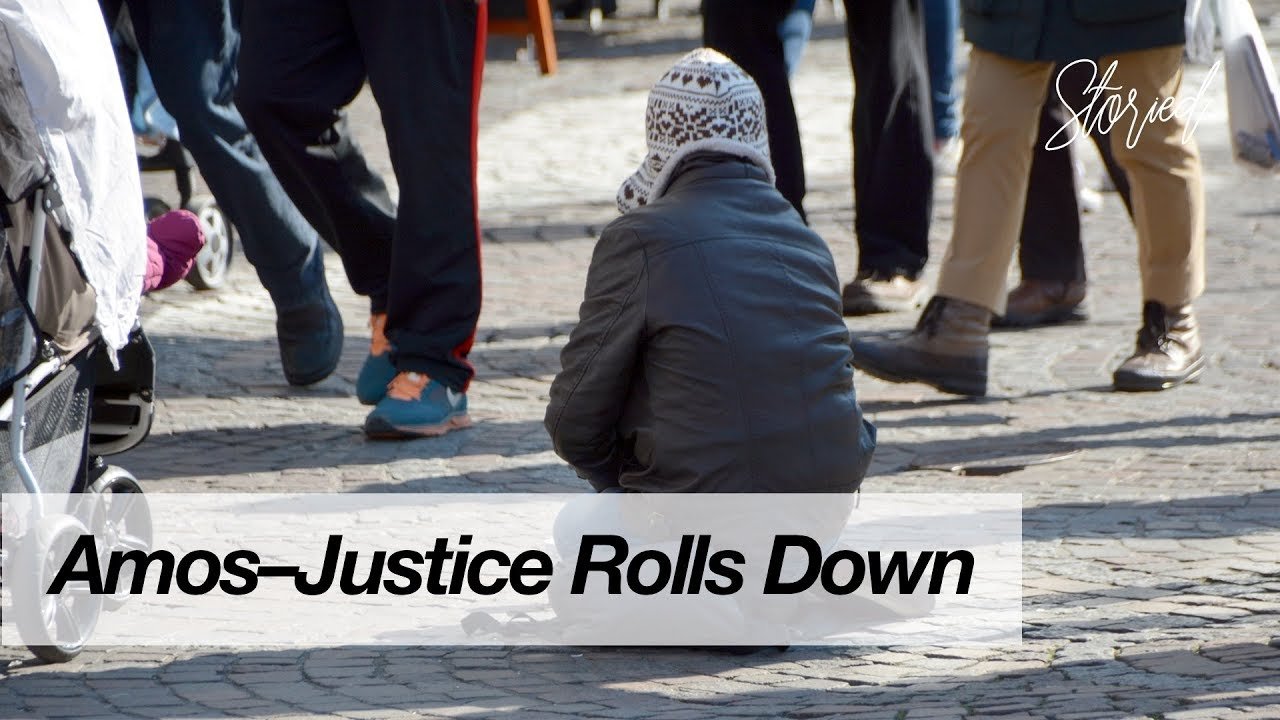A Retelling of Amos and Justice Rolls Down
Times are good. Life is good. It doesn’t seem like there’s a care in this world. When I look at the people around me, we’re headed to the temple, we’re worshipping God, and we’re making our sacrifices. Life doesn’t seem to get any better than this. We’ve got everything we need and then some. One of God’s own has even come to speak to us. Amos is laying into our enemies. He’s calling them out like they deserve and we’re celebrating that. He has harsh words for our enemies far away and even harsher words for the enemies bordering our land. I would hate to be on the receiving end of some of the judgement he’s promising them. They’re not going to end up very well. We’re in the right. They’re in the wrong. They’re finally getting called out. But there’s a problem. Amos has now turned to us. The critical words he had for our enemies pales in comparison to what he’s saying to us. We completely missed what God cares about. We were burning sacrifices on the alter while we turned a blind eye to those starving among us. We were spending all of our time and energy getting together for worship but never stopped to lift a finger to help those in need. We were lifting our voices to God but never speaking up for those with no voice of their own. God is a father to the fatherless, a defender of widows. And we missed that. One thing is for sure. You cannot love God without loving people. You cannot please God without taking care of those society shuns because his heart is with those no one else cares about. How is we worship a homeless man on Sunday and then ignore one on Monday?
A retelling from Amos 1:1-2; 5:14-15, 21-24; John 7:37-38;
Storyline Commentary on Amos 1:1-2; 5:14-15, 21-24
The book of Amos is powerful. The tension it sets up ought to make anyone who has the ability to give cringe. Times seemed to be going pretty well as far as Israel was concerned. They were fruitful and they were plentiful but despite all of the abundance in the land people were still suffering. People were still being forgotten about. People were still being ignored.
This isn’t behavior that’s unique to Israel. It’s pretty common in America too. We go to church, we sing, we offer our surfaces, and we spend an unreasonable amount of time on business meetings that sometimes call attention to the hurting around us. Most of the time they call attention to local congregational problems.
One thing is absolutely clear about this story. You cannot fully love God without loving people. This is what Jesus means when he says he desires mercy, not sacrifice.
If we our lifting our voices up in praise on a Sunday we need to be speaking up for those who have no voice come Monday.
If we are giving gifts to God on Sunday we need to be giving gifts to those in need come Tuesday.
If we are coming together around the Lord’s supper on Sunday we need to equally be feeding those who have no food come Wednesday.
Our worship and love for God is detestable if it doesn’t lead us to caring for those who desperately need our help. This is a part of our Gospel mission, bringing good news to the “least of these.”










